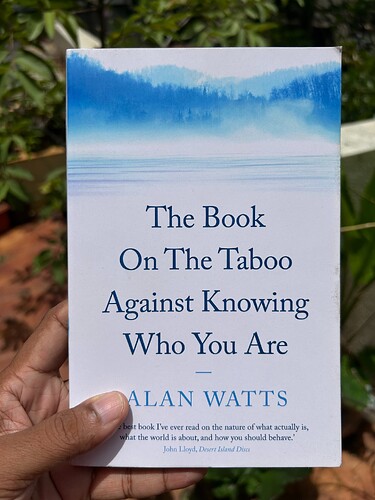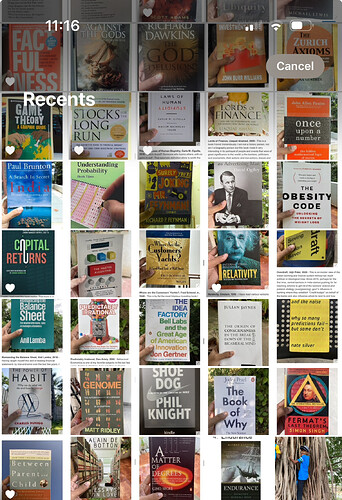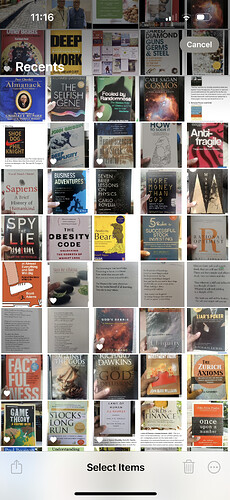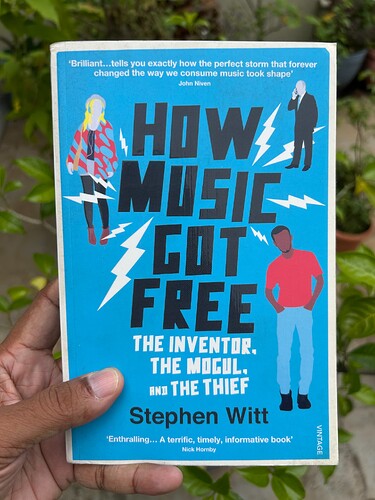The book on the taboo against knowing who you are, Alan Watts, 1966 - The book in the author’s own words, explores the conspiracy to ignore who, or what, we really are. It is a cross-fertilisation of ideas from western science and insights from Vedanta (Somewhat like a easier version of “The Tao of physics”). The book, unlike a religious book, doesn’t have any sermons, no shouldn’ts or oughts with the belief that genuine love comes from knowledge, not from a sense of duty of guilt
My notes -
-
Modern logical philosophers like Wittgenstein suppressed questions like “Why this universe?” or “Where is this universe?” as a kind of intellectual neurosis, a misuse of words that sound sensible but are actually meaningless (like looking for morning news in the dictionary)
-
Inner revolution of the mind is confined to few isolated individuals and historically hasn’t been common to entire communities or societies as its often thought to be too dangerous
-
Humanity is evolving one-sidedly with growth in technical prowess without comparable growth in moral integrity because of our hallucination of “I myself” as living separately inside, and bounded by our physical body (hence we are hostile to everything outside of us in our need to conquer nature, space, mountains and microbes)
-
We do not “come into” this world; we come out of it, as leaves from a tree. Every individual as an expression of the whole realm of matter
-
Religions are divisive and quarrelsome form of one-upmanship, separating the “saved” from the “damned”, the believers from the heretics and the in-group from the out-group (even religious liberals play the “we-are-more-tolerant-than-you” game)
-
All belief is fervent hope, thus a cover-up for doubt and uncertainty. Religions provide this through conversion to remove the nagging insecurity and uncertainty about our position (so beautifully put)
-
Irrevocable commitment to any religion is intellectual suicide and closes the mind to any new vision of the world
-
Our sense of self is a hoax - a temporary role we are playing with our own tacit consent. The sensation of “I” as a lonely isolated centre of being is fundamental to our modes of speech and thought (without it, we dont have a “Theory of mind”)
-
“I” am immeasurably old and my forms are infinite and their comings and goings are simply the eternal flow of energy. Conceptual thinking cannot grasp this - its as if the eyes were trying to look at themselves directly or trying to tell the color of a mirror based on what’s reflected on it. So we resort to what it is like as distinct from what is is. (qualia)
-
The ultimate ground of being is “You”. Not the everyday one you are assuming and pretending to be but the self that escapes inspection because its always the inspector
-
Sophisticated Hindus do not think of God as ruling them from above, like a King, but as being “underneath” rather than “above” everything, playing the world from the inside. No Hindu can realise he is God from the inside without at the same time realising the same as true of everyone and everything else (author attributes the idea to Upanishads)
-
The less I preach, the more I am likely to be heard
-
Conscious attention is narrowed perception (and hence ignore-ance). Its a way of looking at life bit by bit, using memory to string the bits together - like watching the world through a narrow slit and perceiving the cat’s tail and head incorrectly to be separate from each other, as cause and effect (and we give names to these collection of bits of things and events and concepts)
-
We tend to drive a car without focusing our mental spotlight on the road, the other cars or the traffic light while having a conversation (you saw, but didn’t look)
-
We notice what we classify with words and symbols. Eskimos have 5 words for snow while Aztecs have 1 word for snow, rain and hail. We borrow words from foreign languages because its hard to notice things for which we have no language available to us (notice how you switch to English next time while discussing tech or finance)
-
Animals do not live in constant anxiety about sickness and death as we do because they live in the present. Nevertheless, they will fight when in hunger or when attacked
-
Imagination cannot grasp simple nothingness and must therefore fill the void with fantasies (like heaven and hell)
-
Death is a great event (no less great than birth). It is the time to cling less to the illusion and to let go of oneself completely. But the physician is to put off death at all costs - including the life savings of the patients and his family.
-
You don’t die because you were never born. You had just forgotten who you are.
-
“Person” comes from latin “persona” which rose from mask through (per) which the sound (sonus) came.
-
An individual with a colossal external nervous system reaching out and out into infinity and this external nervous system will be so interconnected that all individuals plugged into it will tend to share the same thoughts, same feelings and same experiences (Author pretty much conceptualised internet and social media in 1966)
-
When the outcome of a game is certain, we call it quits and begin another (when we can predict the future to any accuracy, it seizes to be)
-
The colossal connected electronic mind wouldn’t be very different from what the individual is - an organisation for cells while compose our bodies
-
In a whirlpool or a river - no same water stays in it which is what gives it its form. Every person is a similar stream - of water, milk, bread, steak and fruit and vegetables - each of which is their own stream. A constant like a university has constants like students, faculty, admin - but they all come and go giving the uni, its form
-
Technological progress brings delights and happiness at the moment of change - first few uses of radio, television, air travel, miracle drug or calculating machine. But these contrivances are soon taken for granted and the delight vanishes but the oppression persists
-
Our model of the world divides, counts, sorts and classifies (don’t mistake map for territory)
-
Problems that remain persistently insoluble are mostly questions asked in the wrong way (like the chicken-and-egg problem of cause and effect)
-
Matter, meter and material alike are derived from the sanskrit root “matr” (”to measure”) - standing for a world that is measured or measurable
-
Today scientists are realising that the definition of a thing and event must include definition of its environment (referring to quantum physics)
-
Dread of death is learned from the anxieties about sickness and from attitudes to funerals and corpses. Society being our extended mind and body tends to influence us thus
-
Arthashastra doesnt fail to warn the tyrant that he can never win. More absolute his power, the more he is hated and the more he is a prisoner of his own trap. Through enslaving others, he becomes most miserable of slaves (he cannot wander in leisure and listen to the sound of waves)
-
Nothing fails like success (a pre-conceived target) because forcing things to happen which are acceptable only when they happen without force is a contradiction
-
Your education prepares you for your future but not for you to be alive now
-
Our pleasures are not material pleasures but symbols of pleasure - attractively packaged but inferior in content. Products made by people who don’t enjoy making them, as owners or workers, by enterprises run to cut costs and hoodwink the buyer by colorful packaging chicanery to project otherwise. Only exceptions are aircrafts, computers, rockets, scientific instruments and so forth. Its a vicious cycle for when you have made money, what will you buy with it?
-
Most languages are arranged so that actions (verbs) are set in motion by things (nouns) - but rules of grammar needn’t be rules of nature (An organism is not different from its actions)
-
For eternally and always there is only now, one and the same now; the present is the only thing that has no end - Schrodinger (Its amazing the number of quantum physicists who were deeply spiritual - be it Heisenberg, Bohm, Oppenheimer or Schrodinger)
-
The more we try to behave without greed or fear, the more we realize that we are doing this for greedy or fearful reasons
-
Whoever doesn’t put up a fight has no self. A community gets stronger identity through an external enemy to support social unity. Larger societies require larger enemies
-
If the devil does not exist, it would be necessary to invent him - Voltaire
-
Your attainment of any height is apparent to yourself and to others only by contrast to someone else’s depth of failure. This is the worst of all double-binds
-
When line between me and myself dissolves, there is no ego left even as a passive witness. What happens isn’t automatic or arbitrary but just does - like when you first learnt the knack of riding a bicycle or to to swim - as if you are a leaf blown by the wind, except you both the leaf and the wind…
-
…your body is no longer a corpse which the ego has to animate and lug around. The ground holds you up, the hills lift you up as you climb them. Air breathes itself in and out of your lungs. All space becomes your mind. Time carries you along, like a river, but never flows out of the present - you never have to fight or kill it
-
When purpose has been used to achieve purposelessness, the thing has been grasped - when farms begin to look like gardens (Chinese philosophical belief)
-
Knowing and being, rather than seeking and becoming
-
Awareness of own existence is so superficial and so narrow that simply being to us is boring. We don’t remember what we saw, smelled, heard, tasted or touched yesterday - with nothing worth remembering, our present is so bare that its no surprise that our longing for a better future is insatiable (Its not how long you live, but how well)
-
True humour is laughter at oneself, true humanity is knowledge of oneself
-
Nothing eludes conscious inspection like consciousness - that’s why root of consciousness is paradoxically called the “unconscious”
-
The unity, or inseparability of the one and many is referred in Vedanta philosophy as non-duality (advaita). Walking the thin-line (the razor’s edge) is the hardest balancing act (appears to be from katha upanishad)
-
Idolatory isn’t just worshiping of idols but mistaking ideas and abstractions with representative images - it is as insidious as bronze idols
The 60s were perhaps considerably helped by mind-altering drugs and counter-culture in the west that so much eastern influence and spirituality seeped into popular culture there that even scientists in the cutting edge of tech were tremendously influenced. We have since then taken a hard turn back to Newtonian and Pythagorean approach of straight-edge and certainty in science and culture burying the open-minded approach of Kantian philosophy, relativistic physics and quantum theory, Godel’s incompleteness theorems which kept uncertainty and doubt brimming. I found the book very relatable but it may not be the case for everyone. 9/10




